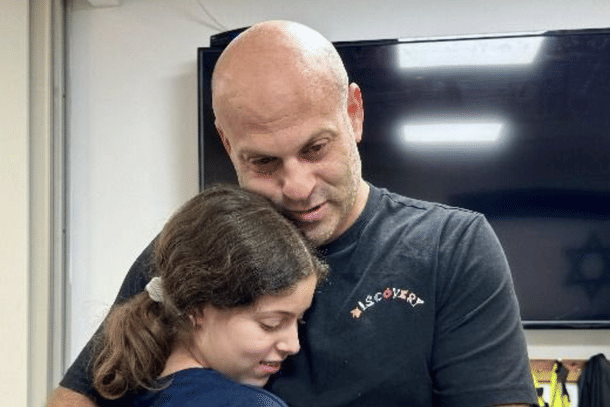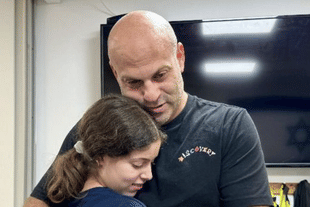News Headlines
Israeli Hostages' Testimonies Reveal The Horrors Of Hamas Captivity
Swarajya Staff
Dec 02, 2023, 10:26 AM | Updated 10:26 AM IST
Save & read from anywhere!
Bookmark stories for easy access on any device or the Swarajya app.


In a chilling revelation, details have emerged about the harrowing conditions faced by hostages held by Hamas following their attack on Israel on 7 October.
The crisis, which began with Hamas' attack on Israel on 7 October, led to the capture of around 240 individuals, ranging from infants to the elderly.
While dozens have been released, many remain unaccounted for, presumed to be still in the clutches of the Palestinian terror group in Gaza.
The International Red Cross and other humanitarian organisations have been denied access to the hostages, leaving the world to rely on the accounts of those who have been freed. These testimonies paint a bleak picture of life under captivity.
Eyal Nouri, nephew of Adina Moshe, a hostage dragged from her home in Israel to the underground tunnels of Gaza, described her ordeal.
"They took her inside the tunnels … she walked, bare feet in the mud of the tunnels," recounted Nouri to CNN.
"It was very hard to breathe. They marched [for] hours in the tunnels," Nouri added.
Moshe was held in a underground room where the lights were on for only two hours a day, a situation her nephew described as both literally and figuratively dark.
The plight of the hostages was not uniform, as some, like the 9-year-old Emily Hand, were held above ground.
Emily's father, Thomas Hand, shared his daughter's experience after her release: "The most shocking, disturbing part of meeting her was she was just whispering, you couldn’t hear her. I had to put my ear on her lips," he said.
Emily, along with her friend Hila Rotem-Shoshani and Hila’s mother, Raaya Rotem, were moved from house to house as Israeli forces advanced into Gaza.
"That’s terrifying. Being pulled, dragged, pushed … under gunfire probably," Hand added.
The food provided to the hostages was basic and insufficient.
Grandmother Ruth Munder told Israel’s Channel 13 that initially, they received chicken, rice, canned goods, and cheese.
"When we got up we had tea and in the evening once again tea and sweet things for the children," she said. However, as the economic situation worsened, the food became scarce.
Physical and psychological abuse was also a part of the hostages' ordeal.
Twelve-year-old Eitan Yahalomi was beaten upon arrival in Gaza, according to his aunt Deborah Cohen. "Perhaps I was naïve but I thought he would be well-treated. But no, they are monsters," she lamented.
The psychological impact on the hostages, especially the children, is profound and concerning.
Omer Lubaton Granot, who founded the Hostages and Missing Family Forums, highlighted the mental torture inflicted on the children: “Sisters of other children told them that Hamas have told the children that their whole family has died, that nobody wants them back, that they don’t have a home to go to. They tried to scare the children.”
As the hostages return, many are discovering the loss of their homes and loved ones in the 7 October attacks. The process of rehabilitation is expected to be long and challenging, with many suffering from anxiety, depression, disorientation, grief, post-traumatic stress, and survivor’s guilt.
As of the latest reports, Israel believes that 137 hostages taken on 7 October remain in Gaza.





